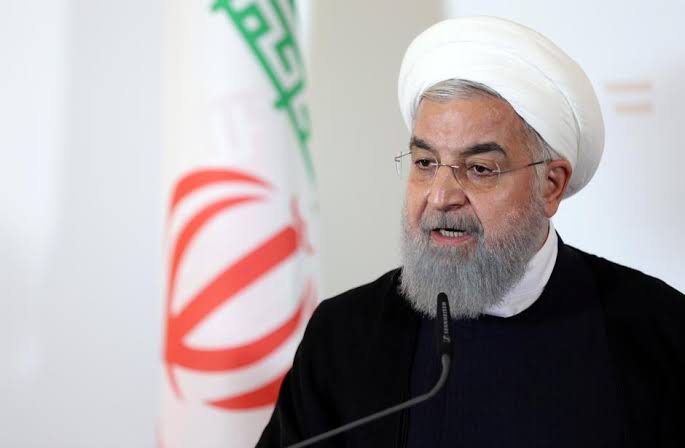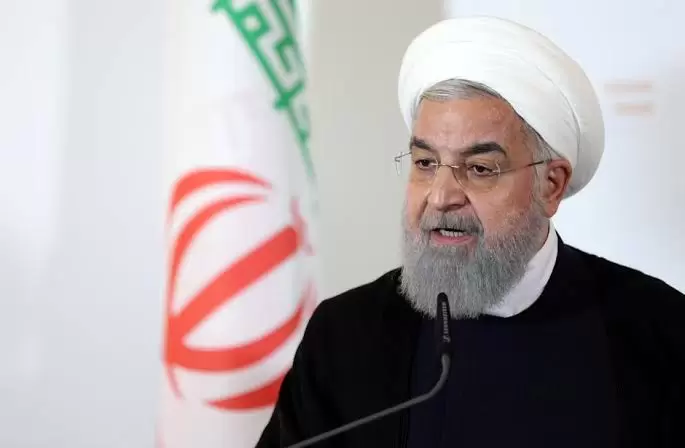

Last updated on September 11th, 2021 at 03:07 pm
In his more than three decades in charge of the Islamic Republic of Iran, Ayatollah Ali Khamenei has battled to consolidate power at home and expand the regime’s influence across the region.
But the 80-year-old leader is facing his toughest challenge yet as he seeks to unify a fractured establishment and calm people angry at the alleged cover-up of the cause of a plane crash last week.
In recent days, public mourning at the US assassination of military commander Qassem Soleimani has turned to rage after it emerged that Iran had mistakenly shot down a Ukraine International Airlines jet, killing 176 people.
“The relationship between the nation and the state has never been as split as it is today, while even inside the political system, politicians accuse each other of hiding and pretending,” said one reformist analyst.
There are now “accusations that the state is systematically lying and hence Ayatollah Khamenei has become the main target of public wrath [as the top leader] and the government of [Hassan] Rouhani is seen as too lame to make any changes”.
Under Iran’s theocratic rule, the supreme leader is seen as infallible, enjoying “absolute” authority over all the country’s affairs including the military. After the death of Soleimani, he authorised the Islamic Revolutionary Guard Corps to launch missile attacks on US forces in Iraq. No American soldiers were killed and Iran sent a message to the US that that would be the only direct military retaliation if the US did not itself retaliate.
The supreme leader won plaudits at home for a strategy that saw him avenge Soleimani’s death, but avoid war with the US. “Which regional leader, or any leader in the world, would ever dare to challenge the US the way Mr Khamenei did?” said one regime insider. “Nobody.”
Under Iran’s theocratic rule, the supreme leader is seen as infallible, enjoying absolute authority over all the country’s affairs © Handout/AFP/Getty
A clerical student of Ayatollah Ruhollah Khomeini, the founder of the Islamic republic, Mr Khamenei spent years in jail before the 1979 revolution. Since then, he has held several positions in government and was acting head of the Revolutionary Guard before serving as president and then supreme leader in the wake of Khomeini’s death. With the Revolutionary Guard’s admission that the Ukrainian plane had been mistakenly shot down, thousands took to the streets, many chanting abusive slogans not just against the guards but also the supreme leader himself.
“The crash was like a huge earthquake that . . . showed all the system’s inefficiencies, corruption and the lack of co-ordination between the military and public sectors,” said the analyst.
For many people, what was worse than the crash was the alleged cover-up of the cause, not only from the people but also from Mr Rouhani, the centrist president re-elected in 2017 in a landslide. In theory second-in-command to the supreme leader, Mr Rouhani had been undermined by hardline forces and humiliated, analysts said.
“Running the country like this has no [good] result as we are facing widening splits,” Ali Shakouri-Rad, a reformist politician, said in a post on Twitter. “Hiding the reality over firing missiles is like throwing acid in the face of the Islamic Republic of Iran. The only solution is good governance.”
As public anger grows — and the economy is squeezed by US sanctions — the supreme leader, known for his pragmatism, may make small reforms to relieve tensions but is unlikely to institute larger changes. “If street protests get out of control, we shall see a brutal crackdown similar to China’s Tiananmen [in 1989], ” said the analyst.
“Reformists should say goodbye to politics and leave,” said the insider.
The supreme leader remains focused on regional policy, as executed through the Revolutionary Guard, which remains unconditionally loyal to him.
The plan is for “the US’s withdrawal of forces from the region in the long run while our midterm focus will be on Iraq”, said the insider. What Iran wants from the Iraqi government is to “stop its inactive approach and act to get rid of both the US and its own US-, UK-educated and tie-wearing politicians”, he said.
Under this new approach, he added, Iran would, despite its years of support for the Assad regime in conflict-torn Syria, effectively leave Syria to Russia. “In a choice between military might and reforms, Mr Khamenei has chosen rising military power for which it needs to keep good relations with Russia and China,” said the analyst.
On the home front, reformists suspect the supreme leader may authorise hardliners to purge an older generation of politicians — conservatives and reformists mostly in their sixties or seventies — and empower younger politicians close to the guards. Last year he vowed to build “a great Islamic Iran”, relying on the “religious and revolutionary youth”.
This week, about a third of sitting members of parliament were banned from participating in the parliamentary poll next month. Even if Mr Khamenei allows reformist candidates — as he has done in the past to help boost turnout — many people have concluded that the polls no longer make a difference in their lives.
“Massive disqualification of reformist candidates shows . . . the next parliament should be controlled by ‘the religious and revolutionary youth’ favoured by the supreme leader,” Mostafa Tajzadeh, a reformist politician, said in a post on Twitter. “He wants the country not to deviate from the goals he has set for the next 40 years.”
Over his three-decade rule, the supreme leader has worn a keffiyeh — a chequered Palestinian black and white scarf — under his robe in a symbolic gesture of support for “resistance” groups in the Middle East. “This keffiyeh shows clearly in which direction his foreign policies go,” said the analyst. “At home, the Islamic republic will neither collapse nor reform itself — at least as long as Mr Khamenei is alive.”
The Oklahoma City Thunder secured their tenth consecutive victory by beating the Chicago Bulls 145-117. This victory raised their season…
Rob Walter Resigns his Position as coach for the Proteas men's team for white-ball games because personal problems needed attention.…
Starting April 2, South African drivers will get lower costs when filling their tanks as fuel prices decrease for all…
The U.S.-based driver training company Zutobi analyzed road safety worldwide and found South Africa stays last in driving danger since…
The Basketball Africa League (BAL) returns for its 2025 season with exciting changes and developments. Since 2019 the NBA-linked basketball…
The Somali president supports their military forces to eliminate the threats from Al-Shabaab, ISIS, and Al-Qaeda. The Somali National Army…
This website uses cookies.